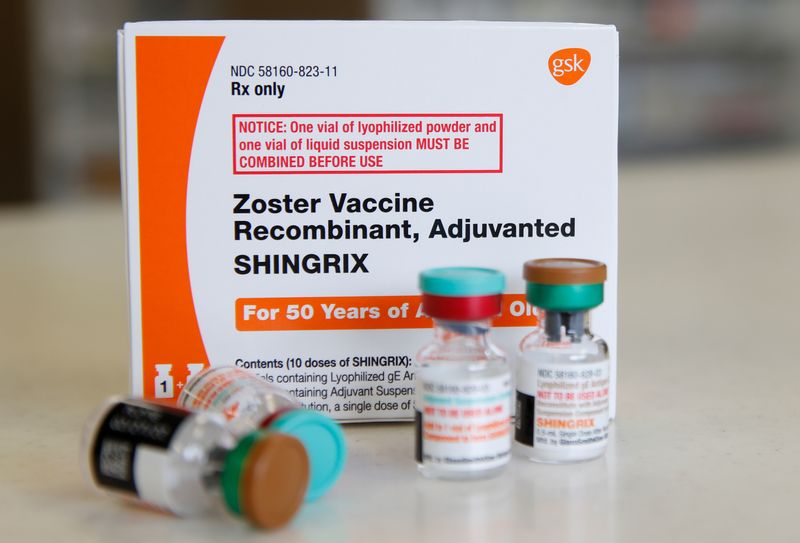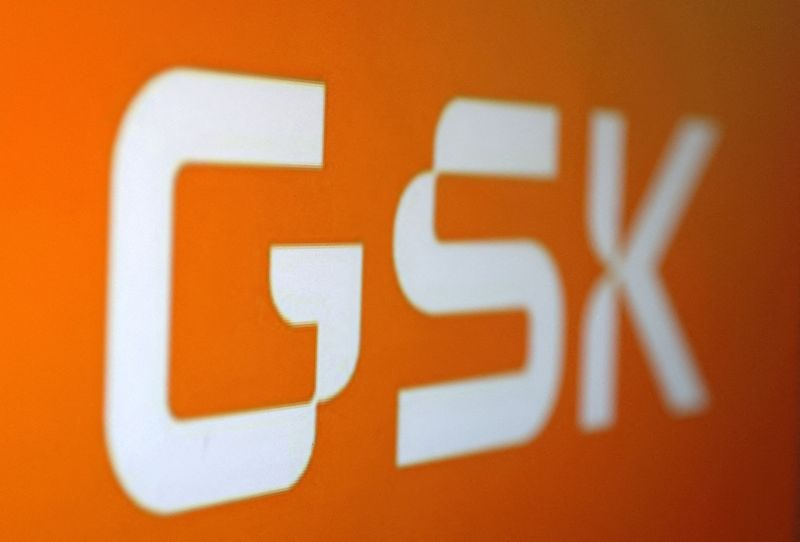By Yadarisa Shabong and Maggie Fick
(Reuters) -GSK on Wednesday said its vaccine sales would fall this year, after a weaker-than-expected performance for its respiratory syncytial virus (RSV) and shingles vaccines in the third quarter, pushing shares down as much as 4.1%.
The British drugmaker now expects 2024 vaccine sales to decrease by a low-single digit percentage. It had previously expected the business to grow by a low- to mid-single digit percentage.
This is the second time this year the company has cut its 2024 vaccine sales forecast, in a blow to plans to position the business as a major future growth driver.
GSK CEO Emma Walmsley's bet on blockbuster RSV vaccine, Arexvy, has hit a snag in recent months after the U.S. public health agency narrowed the age recommendation for use of RSV vaccines and delayed the recommendation for adults under 60.
The RSV season has also been weaker this year and U.S. authorities have instead focused their vaccination efforts on other diseases including COVID-19, GSK said.
Arexvy sales slumped 72% to 188 million pounds ($244.40 million) in the quarter ended Sept. 30, missing market expectations of 238 million pounds, while sales of shingles vaccine, Shingrix, fell 7% to 739 million pounds, also below estimates in a company compiled consensus.
Walmsley told journalists the company has "some pressure short-term on vaccines", but said that its "medium and long-term prospects" for both Arexvy and Shingrix are strong.
GSK beat analyst expectations with reported core earnings per share of 49.7 pence on sales of 8.01 billion pounds, compared with estimates of 43.6 pence on sales of about 8 billion pounds.
It kept full-year total sales and earnings forecasts unchanged.
"We are on track to deliver our 2024 guidance, and we are even more confident in our 2026 and 2031 outlooks," Walmsley said in a statement. The company did not say what it expects for 2025.
Since taking the helm of GSK in 2017, Walmsley has returned the company to growth with a focus on cancer and infectious diseases to counter a combination of patent expiries and declining revenue from current bestsellers by the end of this decade.
Earlier this month, GSK reached a $2.2 billion settlement to end most of its lawsuits in the United States, claiming that its discontinued version of the heartburn drug Zantac caused cancer.
It took a 1.8 billion pound charge relating to the settlement in the quarter.
With the settlements, GSK has drawn a line under the lawsuits related to Zantac that have weighed heavily on its shares for more than two years.
However, analysts say weakness in its vaccine business - due to declining Shingrix sales in the U.S. and China and a weaker- than-expected third quarter for RSV sales in the U.S. - has cast a new shadow over the shares.

GSK shares were down 3.9%, as of 0958 GMT, after earlier hitting their lowest since November 2023.
($1 = 0.7692 pounds)
